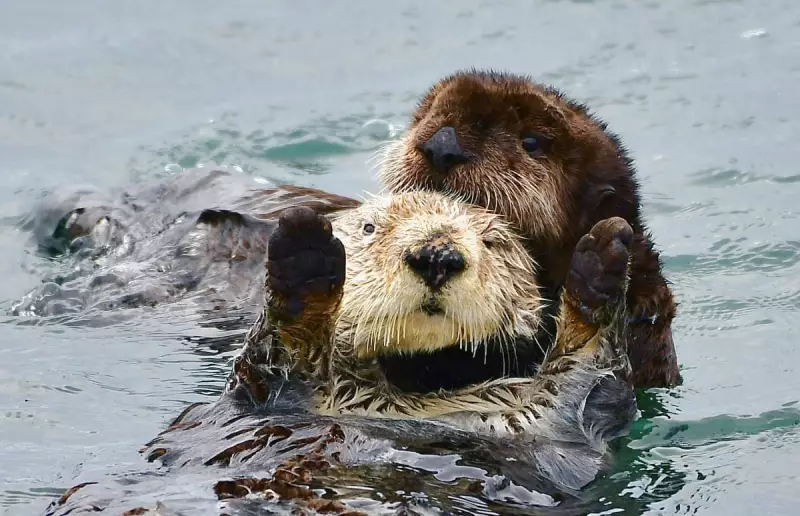
Dramatic Rescue of a Helpless Pup
On a foggy October afternoon along the central California coastline, a desperate cry echoed across the waters of Morro Bay. The Marine Mammal Centre's public hotline received an urgent call reporting distressed, high-pitched sounds, described as resembling a human infant's screech, emanating from the chilly Pacific.
Experts from the centre swiftly identified the source: a southern sea otter pup, estimated to be just two weeks old, had become tragically separated from its mother. For a creature of such tender age, this situation was dire. Shayla Zink, a specialist at the Morro Bay centre, emphasised the critical nature of the bond, stating, "That pup is really relying on everything it learns from the mother to be able to survive in the ocean."
A mother sea otter typically provides care for her offspring for up to nine months, often seen cradling the small baby on her chest. Without this essential guidance and protection, the pup's chances of survival were slim.
The Ingenious Reunion Mission
The centre's team, collaborating with the Morro Bay harbour patrol, launched a complex, hours-long operation to save the young otter, whom they christened Caterpillar. Their first step was to secure the pup in a safe container to prevent overheating.
Understanding that time was of the essence, the rescuers recorded the pup's frantic cries. Their strategy was innovative: they would patrol the bay by boat, broadcasting the recorded distress calls through a Bluetooth speaker. This was intended to lure the mother otter towards the vessel.
The decision to use a recording was crucial. The team was concerned that the exhausted pup might eventually stop vocalising, leaving them without a means to signal its location to its searching mother. This technique had proven successful before, notably in a similar 2019 rescue.
The determined crew, responsible for a vast 600-mile stretch of California coastline, persevered for two hours, playing the screeching cry on a continuous loop. "Our intern had kept hitting play every once a minute," Zink recalled. "I think we all went home and it was still playing over and over in our brains."
A Tearful Reunion and Broader Significance
The team's persistence paid off. Eventually, a female otter began acting unusually, popping her head above water and following the boat. Zink noted this was abnormal behaviour, as otters are generally preoccupied with sleeping, eating, and grooming their dense fur, showing little interest in humans.
This otter, however, was persistent. As Zink moved the speaker from one side of the boat to the other, the animal diligently followed the sound. Convinced this was the mother, the team carefully lowered Caterpillar into the water.
Video footage of the moment captures the heartwarming reunion. The mother otter swims directly to her pup, who is floating helplessly on its back. She then gathers the baby into her arms, appearing to smell and inspect it, running her paws meticulously over its fur.
"I definitely cried a bit," admitted Zink, reflecting on the emotional success.
This rescue carries profound importance for the region's ecosystem. Sea otters are a keystone species, vital for maintaining the structural integrity of marshy banks and preserving marine biodiversity. Their presence helps control sea urchin populations, which in turn protects kelp forests.
By the 1920s, centuries of industrial-scale hunting for their luxurious pelts had nearly wiped out sea otters, decimating a population that once ranged from Alaska to California, and across to Russia and Japan. While hunting bans and restoration efforts have allowed the southern sea otter population to recover slightly, their numbers remain precarious.
Zink highlighted that there are still only approximately 3,000 southern sea otters in the California region. "It's just a really special moment to be able to reunite this threatened species with its mother," she said, "because any and every individual in this population is so, so important to keeping it going and bringing it back from that threat status."





